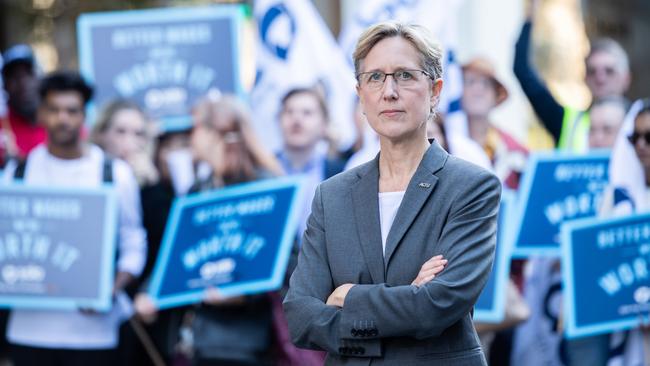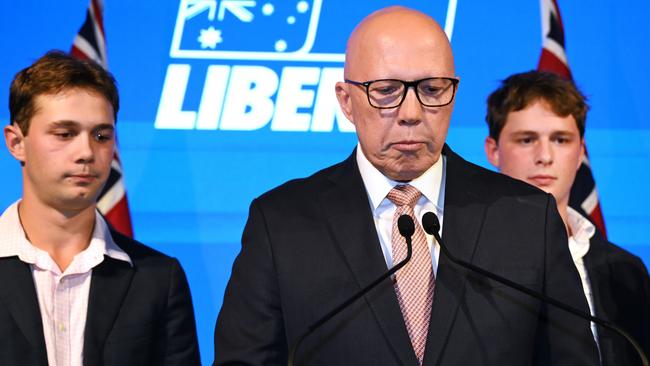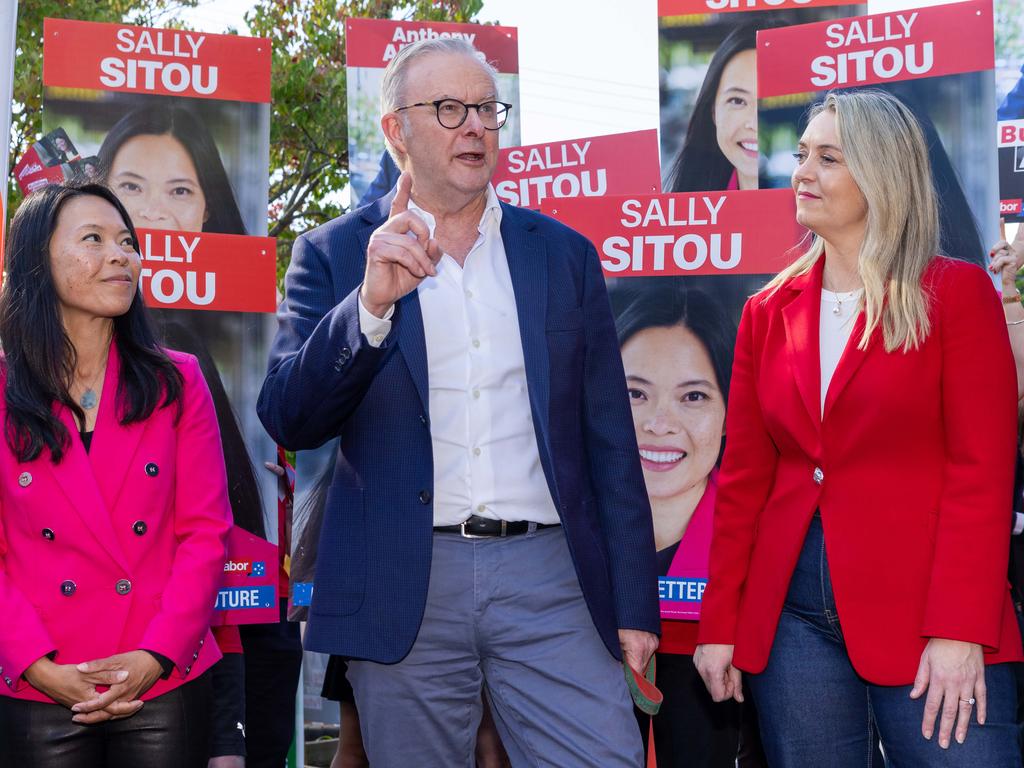Lifting workers’ living standards is ACTU’s top priority
Unions nominate Peter Dutton’s deep unpopularity and disastrous working from home backflip as key factors in the Coalition’s stunning defeat.

Unions will press the re-elected Albanese government for policy action to lift workers’ living standards as they identified Peter Dutton’s deep unpopularity with voters and disastrous working from home policy backflip as key factors in the Coalition’s defeat.
Labor’s immediate workplace policy priorities will be to legislate to protect penalty rates in awards; ban the imposition of non-compete clauses on low and middle-income workers; and press the Fair Work Commission to grant above-inflation pay rises for 2.9 million low-paid workers.
The ACTU’s legislative priorities for Labor’s second term have been pushing the government to legislate to scrap junior pay rates for more than 500,000 workers aged 18 and older across the retail, fast-food and pharmacy sectors if unions fail to convince the commission to abolish them.
Unions have nominated the expansion of gig worker minimum standards to freelancers and expansion of the National Employment Standards to insert 10 days’ reproductive leave as priorities,
They have said they would press for a watering down of the employer capacity to lock out workers during industrial disputes and, in the long term, a review of the casual loading rate once new casual employment changes had been bedded down.
Asked whether the size of Labor’s victory would encourage the union movement to pursue a more ambitious agenda, ACTU secretary Sally McManus told The Australian: “I think we’ll take stock of this result, first of all, given its size.
“The No 1 thing is we have got to see people’s living standards start growing again. We have started the work on that and we have got to see it work. That’s got to translate by three years’ time so we’ve got to take stock and look at things from that perspective.”
Reflecting on the election campaign, and the reasons for the result, Ms McManus said “if you try to distil it down to one thing, it would be Peter Dutton – him full stop – mixed with Trump”.

“I think it started shifting when Donald Trump started behaving badly. It started shifting when Cyclone Alfred happened and Albo had the clear air to demonstrate leadership. Then it shifted with the working from home backflip, which was an absolute disaster for them,” she said.
“It just reverberated throughout all their policy announcements and mistrust for Dutton. Not only was it attacking workers’ rights in a cost-of-living election, it was actually a cost-of-living issue for a whole lot of people. It played into the echoes of Trump.
“The continued lack of policy from the Liberals was a huge issue. On the one hand, they were saying the cost of living was so bad, everything is so terrible and then they didn’t have a policy offering that measured up to how bad they were saying it was.
“(Anthony) Albanese campaigned very well but the biggest player really was Peter Dutton.”
She said the Coalition’s botched work from home policy “was a rolling shit storm”.
“The size of the shit storm didn’t really dissipate after the backflip because the backflip just reinforced the view that you can’t really trust them,” she said.
“They don’t even really stand for what they say they are going to stand for. I think that then when on to infect their other policy announcements. The flip-flopping hurt their credibility. I think absolutely the issue of flip-flopping on policy and work from home, if there was any cut-through issue that hurt Dutton, it was that.”

Unions campaigned under the “Don’t Risk Dutton” theme. Thousands of union volunteers mobilised in 21 seats, supported by targeted digital advertising viewed more than 250 million times.
The ACTU spent $3.5m on paid advertising alone.
Unions decided last year on a digital-first strategy targeting gen Z and millennial voters, believing their vote was soft and they listened to issues around workers’ rights. By the end of the campaign, two-thirds of workers aged 18-34 were worried about the risk Mr Dutton posed to their wages.
Ms McManus said the fallout from Mr Trump’s tariffs, especially the hit taken to the superannuation balances of workers during the campaign, had a “huge impact” particularly on older gen X and boomers”.
As well as the WFH debacle, Ms McManus said the Coalition’s threatened 41,000 public sector job cuts hurt them. “It was people remembering Robodebt and what happened under that government. Again it was the echoes of Trump,” she said.
“This was further proof of them just following that playbook, which became more and more toxic. It was a total bullshit policy, an impossible to achieve policy. Only in Canberra and it was going to be by attrition. You can’t achieve what they were saying they wanted to achieve that way.”
She said while voters may have had issues with the Victorian Allan government, they clearly made the distinctions between state and federal Labor.
“There were eight seats with a 10 per cent swing, and they’re in four states, and then there are so many on 8 per cent swings,” she said. “You can’t have all of that without one common denominator and the common denominator was really Dutton.”






To join the conversation, please log in. Don't have an account? Register
Join the conversation, you are commenting as Logout